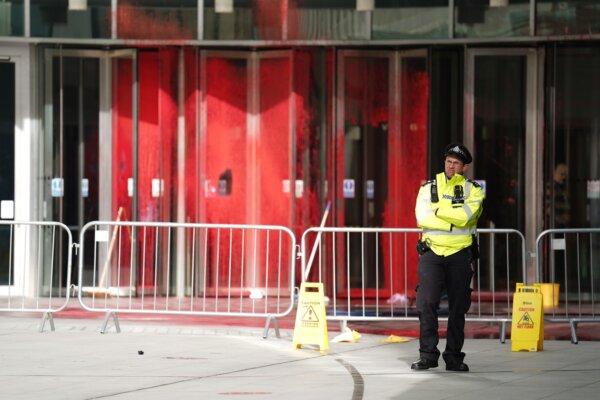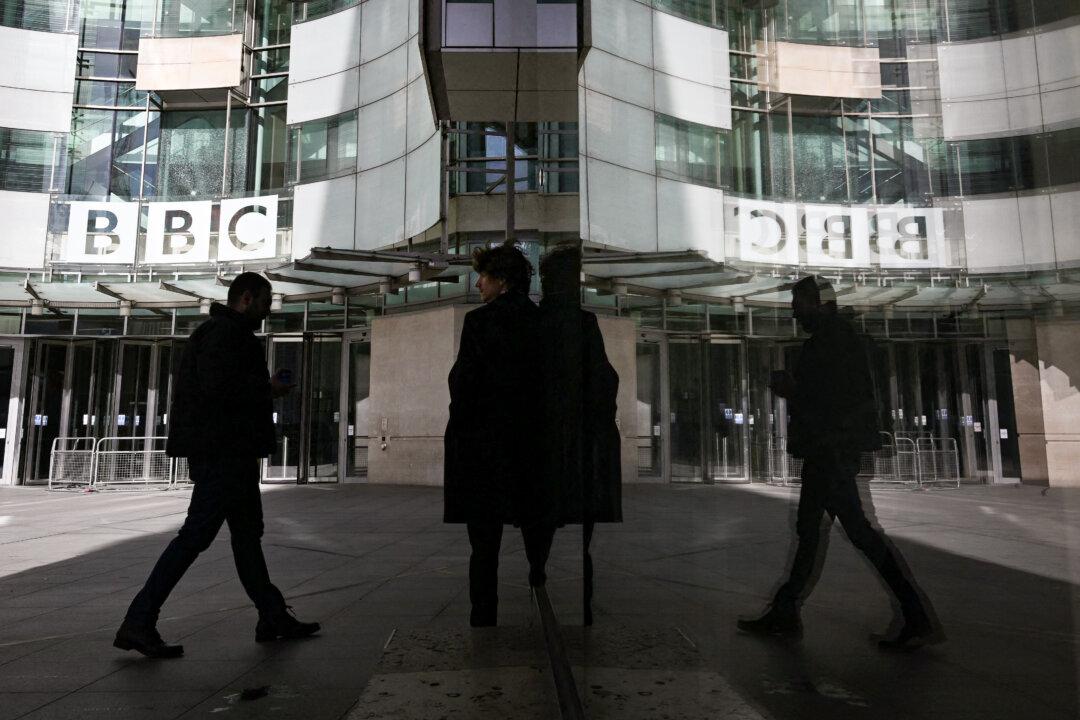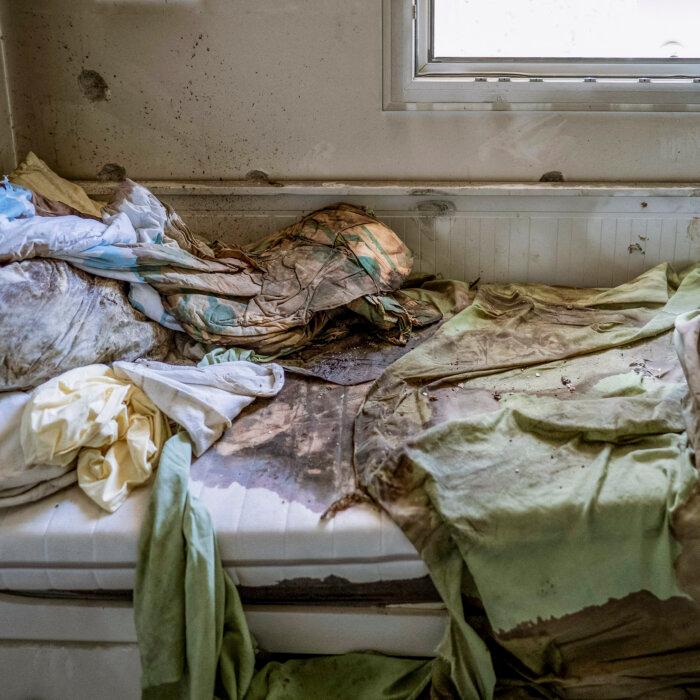The BBC has been labelled “institutionally anti-Semitic” over perceived bias in its coverage of the Israel–Hamas war.
In a Westminster Hall debate on Tuesday about the BBC’s impartiality, former Attorney General Sir Michael Ellis said the public broadcaster is “effectively becoming complicit in Hamas’s well-orchestrated disinformation campaign.”
Since the war broke out in October last year, foreign journalists have relied heavily on local freelancers and information provided by Israeli officials and the Hamas terrorist group since they can’t get into the Gaza Strip without military escort.
The BBC has been criticised heavily for refusing to directly call Hamas a terrorist group, and over a number of reports that included unsubstantiated allegations against Israel, for which it has apologised.
Sir Michael accused the broadcaster of accepting Hamas’s claims too readily while treating information released by Israeli officials with scepticism.
The Jewish MP referenced the broadcaster’s report on the bombing of the Al-Ahli Arab Hospital in October last year, saying it was “the most dangerous example.”
During the BBC’s live coverage after the incident, reporter Jon Donnison also speculated, “It is hard to see what else this could be, really, given the size of the explosion other than an Israeli airstrike, or several airstrikes.”
Sir Michael asserted that less “flagrant” examples also show BBC News is biased against Israel.
“The BBC follows Hamas’s cynical policy of not distinguishing between civilian and combatant casualties. BBC News reports routinely add what amounts to disclaimers on information released by Israel or the Israeli army as being unverified. Time and again, that same rule is not applied to information released by Hamas,” he said.
Hamas, a proscribed terrorist group, led attacks against Israel on Oct. 7 last year, killing some 1,200 Israeli and foreigners. Around two-thirds were civilians. The terrorists also took some 240 hostages. Roughly 130 are still unaccounted for.
Israel declared war on Hamas one day after the attack, vowing to wipe out the terrorist group. The Gaza health ministry has claimed the Palestinian death toll in the enclave is now nearing 30,000. Hamas doesn’t differentiate between civilian and combatant casualties or between those killed by the Israeli military and those killed by bombs launched towards Israel but that fall short.
Double Standards
Sir Michael criticised the BBC for refusing to call Hamas a terrorist group without attribution, saying its willingness to use the words “terror attack” in relation with ISIS is evidence of double standard.The MP cited a poll from December last year that suggested 77 percent of Jews in Britain thought BBC coverage of the war was biased against Israel and reported complaints from Jewish employees at the BBC, saying: “The BBC’s senior management has fundamentally failed to deal with this problem and uphold its own guidelines. The organisation now appears complicit in peddling misinformation and allowing anti-Semitism to fester. In those circumstances, I have come to the conclusion that the BBC is institutionally anti-Semitic.”
He asserted that the BBC News’s broadcasting and online content “has actively inflamed community tensions” in the UK and “fuelled the appalling rise in anti-Semitism.”
He argued against the current mechanism under which the BBC deals with complaints itself before they can be escalated to Ofcom, saying, “The BBC’s ability to mark its own homework must be removed.”
Sir Michael’s criticisms were echoed by a number of MPs, including Andrew Percy, who said his Jewish constituents in Brigg and Goole “are bloody terrified now,” and Democratic Unionist Party MPs, who said the BBC’s Brexit coverage was also biased.
However, Conservative MP Simon Jupp said “other public service broadcasters such as ITV and Channel 4” also don’t refer to Hamas as a terrorist organisation, and argued politicians should “be a bit careful about asking broadcasters to bow to our whims as members of Parliament when it comes to proscribing things and making editorial decisions.”

The BBC has also been targeted by pro-Palestine activists, some of whom doused the front door of the Broadcasting House with red paint days after the war broke out, claiming the paint symbolises the BBC’s “complicity in Israel’s genocide of the Palestinian people through biased reporting.”
The Scottish National Party’s Cabinet spokeswoman Kirsty Blackman cited a different poll that suggests 17 percent of Britons thought the BBC was pro-Israel, compared to 15 percent who thought it was pro-Palestine.
Mr. Percy argued it’s “irrelevant” what people think.
“It is about the actual coverage; it does not matter what the perception is,” he said.
“I have so far not found a single example of a BBC journalist who has had to be dealt with, suspended, or reported for making pro-Israeli statements on their social media accounts, whereas there are plenty that relate to this. The fact that there might be that perception does not alter the fact that there is an issue,” he said.
The BBC didn’t respond to The Epoch Times’ request for comment. In a statement to The Telegraph, a spokesman for the BBC said of the accusation that the corporation is institutionally anti-Semitic, “We do not agree with this opinion, which we reject entirely and is not borne out by the facts.”
Meanwhile, dozens of journalists from outlets including the BBC, Sky News, and CNN demanded independent access to Gaza.
It comes after Israel’s Supreme Court rejected a petition from the Foreign Press Association last month, saying the IDF’s barring of journalists was justified under the circumstances.







